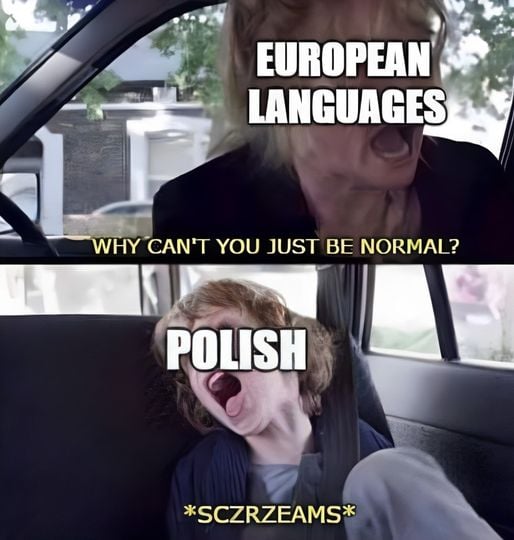Be Polish. Live at the crossroads of three major continental zones. Incorporates traditions from Arabic, Latin, and Nordic languages into a unique synthesis. Everybody hates it. Nobody wants to speak it.
Be English. Live at the ass end of nowhere, and become a haven for vagrants, dissidents, pirates, and exiles. Incorporate traditions from Latin, Germanic, and Frankish languages into a unique synthesis. Everyone hates it. Nobody wants to speak it. Become worlds most spoken language anyway.
Moral of the story. People will have to learn your shitty incoherent language if you build a big enough navy.

